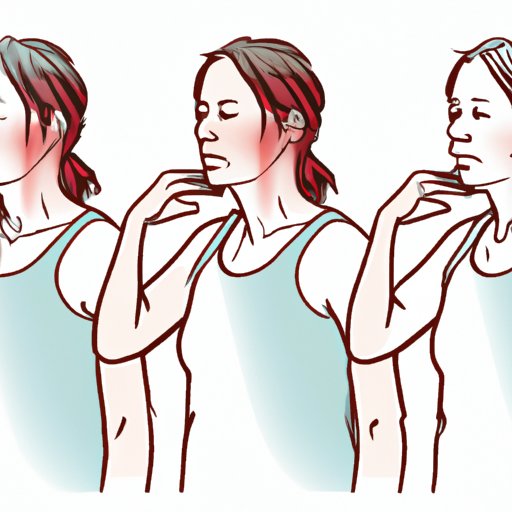
Introduction
The vagus nerve is an important part of the parasympathetic nervous system, which is responsible for the “rest and digest” response that occurs when our body is relaxed and at ease. This nerve is involved in many functions, such as heartbeat, breathing, and digestion. It is also responsible for maintaining our emotional and mental well-being.
One of the most significant benefits of stimulating the vagus nerve is that it helps to reduce inflammation, which is a major factor in disease and illness. By keeping our vagus nerve stimulated, we can also improve our digestive system, decrease our stress levels, and keep our mental health in check.
In this article, we will explore different techniques to stimulate the vagus nerve, including breathing exercises, meditation, exercise, chanting and singing, cold exposure, and acupuncture.
Breathing exercises
Breathing exercises are simple yet effective techniques for stimulating the vagus nerve. By bringing attention and focus to our breath, we activate the parasympathetic nervous system, which in turn stimulates the vagus nerve.
Deep and slow breathing is particularly beneficial for vagus nerve stimulation. It helps to lower our heart rate, decrease our blood pressure, and promote relaxation. One of the most common techniques used for breathing exercises is the 4-7-8 breathing method. This technique involves inhaling for a count of four, holding for a count of seven, and exhaling for a count of eight.
Meditation
Stress is a major factor that can inhibit the function of the vagus nerve. By practicing meditation, we can train our minds to be more resilient to stress, leading to reduced anxiety, depression, and overall better mental health. Meditation also helps to improve concentration and focus, leading to a more productive and fulfilling life.
There are many different types of meditation, such as mindfulness meditation, guided meditation, and Transcendental Meditation. Regardless of the type of meditation, the goal is to quiet the mind, focus on the present moment, and let go of any worries or thoughts.
Exercise
Exercise is another effective way to stimulate the vagus nerve. Cardiovascular exercise, such as running, cycling, or swimming, can improve heart rate variability, leading to a more relaxed state. Yoga is also another type of exercise that has been shown to be particularly beneficial for stimulating the vagus nerve.
Incorporating exercise into our daily routine is a great way to keep the vagus nerve stimulated. Even light exercises, such as taking a brisk walk or doing some gentle stretching, can have a significant impact on our overall well-being.
Chanting and singing
Chanting and singing are practices that have been used for centuries to promote relaxation and mental clarity. These practices also have a positive impact on the vagus nerve. By chanting or singing, we activate the muscles in our diaphragm and throat, which in turn stimulates the vagus nerve.
There are many different ways to incorporate chanting and singing into our daily routine. We can join a choir or singing group, do some karaoke, or simply sing in the shower. These simple activities can have a significant and positive impact on our mental and physical health.
Cold exposure
Exposing our body to cold temperatures is another way to stimulate the vagus nerve. This practice has been used for centuries in ice baths and cold showers in traditional medicine. Cold exposure helps to activate the “rest and digest” response, leading to decreased inflammation, improved digestion, and increased mental clarity.
To incorporate cold exposure into your daily routine, you can try taking a cold shower or swim in cold water. You can also try doing some breathing exercises while sitting in a cold bath or shower to further stimulate the vagus nerve.
Acupuncture
Acupuncture is an ancient Chinese technique that involves inserting needles in specific points in the body to stimulate energy flow. This technique has been shown to have a significant impact on the vagus nerve, leading to improved digestion, decreased stress levels, and overall better well-being.
Acupuncture should be performed by a trained and licensed practitioner. By incorporating regular acupuncture sessions into your life, you can experience the many benefits of vagus nerve stimulation.
Conclusion
The vagus nerve is an important part of our body, involved in many important functions such as heartbeat, breathing, and digestion. By incorporating different techniques such as breathing exercises, meditation, exercise, chanting and singing, cold exposure, and acupuncture, we can keep our vagus nerve stimulated, leading to improved physical and mental health.
It is essential to remember that incorporating these techniques into our daily routine takes time, commitment, and practice. With time and regular practice, we can experience the many benefits of vagus nerve stimulation. Happiness and well-being begin with taking care of our physical and mental health, and by focusing on stimulating our vagus nerve, we can take a powerful first step towards a healthier life.





